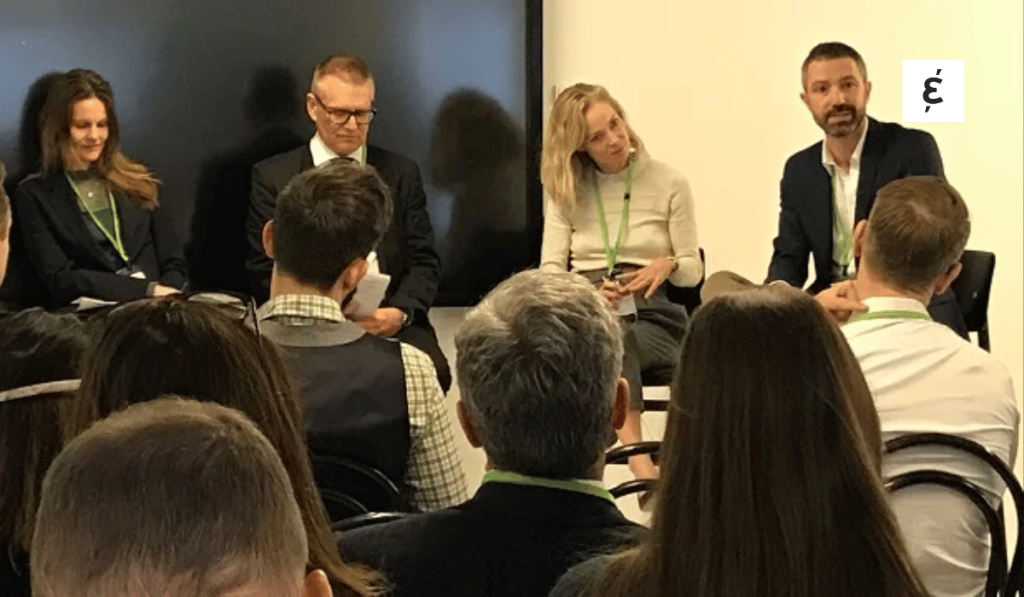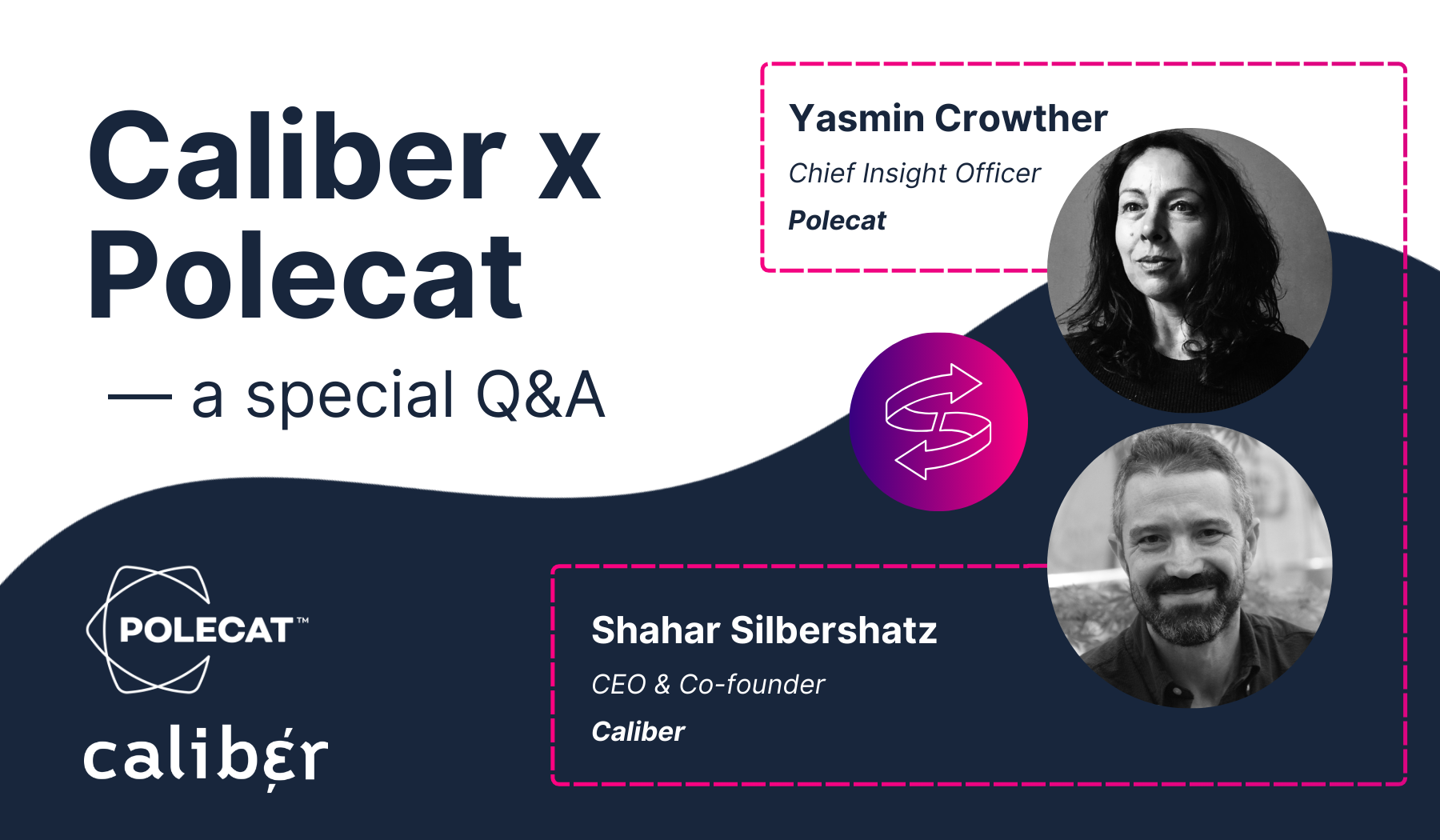

It’s clear to most companies that we’re living in times of heightened scrutiny: low public trust, fast-spreading scandals, and the importance of social responsibility are leading to greater regulatory oversight and a growing emphasis on corporate transparency and integrity.
This makes building corporate reputation tougher than ever, but in our 2018 Top 100 ranking we still found that companies can recover from even severe reputational crises. What does it take to protect and build your reputation in such difficult circumstances?
This question was at the heart of the Deloitte & Caliber panel debate held in Copenhagen on 10 April.
The audience heard reputation-building stories and opinions from Erik Eisenberg, journalist at Dagbladet Børsen; Casper Freddie, Chief Wholesale Officer at Georg Jensen; Shahar Silbershatz, CEO at Caliber; Trine Ahrenkiel, EVP Head of HR & Corporate Communications at Nykredit; and Trine Kromann-Mikkelsen, VP Corporate Communication & Relations at Demant (Oticon).
The debate was moderated by Tanja Juul Christiansen, Partner at Deloitte.
There were several interesting perspectives about how companies should react to crises. One panelist said what matters is not what you do during crisis – but the work you do “between the crises”: it’s how you cultivate stakeholder relationships and build a reputation in good times that will determine how well you weather a crisis when it strikes.
Another panelist went further and said that at times of crisis, you can never do the right thing – if there’s a choice of what to do, then it’s not a crisis but a mere challenge. In a crisis, you often have to do things others won’t like – the trick is to explain it and to be able to have the patience to see things through.
It’s more important to explain your actions to employees, who are more affected and have a right to know what the company is doing and why.
Similarly, it’s at “peaceful times” that you need to build relationships with the media – not at times of crisis. If you do it right, you will have a sympathetic ear when a crisis hits, and you need the media on your side.
The employee perspective came up several times, and there was a general consensus that as a stakeholder group, employees are probably the most overlooked one when it comes to building reputation.
However, this situation seems to be improving, and that can be seen by the increasing importance of employer branding. Another example is cases where Communications and HR are being merged into one department, such as at Nykredit, which helps the interaction between culture and reputation.
However, not everyone agreed: one panelist felt HR and Comms would never get along so bringing the two elements together in reputation-building simply won’t work – in that panelist’s opinion the two functions don’t like each other, perhaps because HR people think they are better communicators than the Communications people themselves!
In any case, everyone agreed that people today, more than ever before, want to work for a company with a purpose – and that is something companies understand and consider when building their reputations.
On that note, many panelists referred to their own companies’ purpose and how clarifying it served them well in strengthening stakeholder relationships.
Several of the panelists admitted that their companies had always had a strong purpose but that they had “forgotten” about it and failed to emphasize it to people around them. One panelist mentioned that being a cooperative gave more meaning to their work in the eyes of both employees and customers and that focusing their narrative around that and committing to the authenticity and transparency that it required helped them “reunite” with their original purpose in a powerful and differentiating way.
Another panelist talked about re-discovering the origin of their company and the story of its foundation – a personal and touching family story that always meant a lot to people inside the company but which has faded over the years and was not known by many external stakeholders.
In that way, they already had a great purpose, a great asset, but they were not doing anything with it. Starting to engage people by sharing this story about the founder and his family is now helping this company establish a stronger narrative and differentiation.
t was clear throughout the debate that not all companies are created equal: some manage to keep above the fray and stay away from trouble, or as some would refer to it – they benefit from the “Teflon effect”. If they’re really good at it, they start communicating like an NGO rather than a company!
Others, however, have to struggle with nonstop scrutiny and negative coverage and suffer repetitive crises – one panelist called that the “Velcro effect”. The Comms professionals in such companies are more like “communication janitors” – constantly having to sweep up the pieces.
So, other than belonging to a Teflon sector rather than a Velcro one, what can a company do to avoid scrutiny? According to one panelist, having continuity throughout the company, especially in management, can give it that Teflon effect because it establishes consistency and long-term planning that are needed.
Another panelist said that as long as you have products people like, then scrutiny and criticism from the business environment will not impact your overall reputation.
We wrapped up the debate with a discussion of trends in reputation management. One of the main trends discussed was the fact that reputation and brand are getting onto the board agenda – some panelists have seen more and more cases where the board was interested in updates on these matters and even in getting more involved.
At the same time, Caliber’s perspective in the panel was that the interest CEOs and Boards have in reputation is still mostly as a threat rather than an opportunity – though some signs are emerging recently to suggest this is changing, for example in the case of CEO activism.
Other trends relate to how Communication departments are getting more savvy in working with data analytics and real-time dashboards and how companies increasingly partner with other institutions to engage a wider stakeholder universe and prioritize a social purpose.
This is also supported by data that shows that perceived integrity continues to be ever more important in driving companies’ reputations.
It’s been a fascinating exchange of stories and opinions – we want to thank everyone who participated and look forward to more such opportunities to learn from other professionals in our field!






© 2024 Group Caliber | All Rights Reserved | VAT: DK39314320